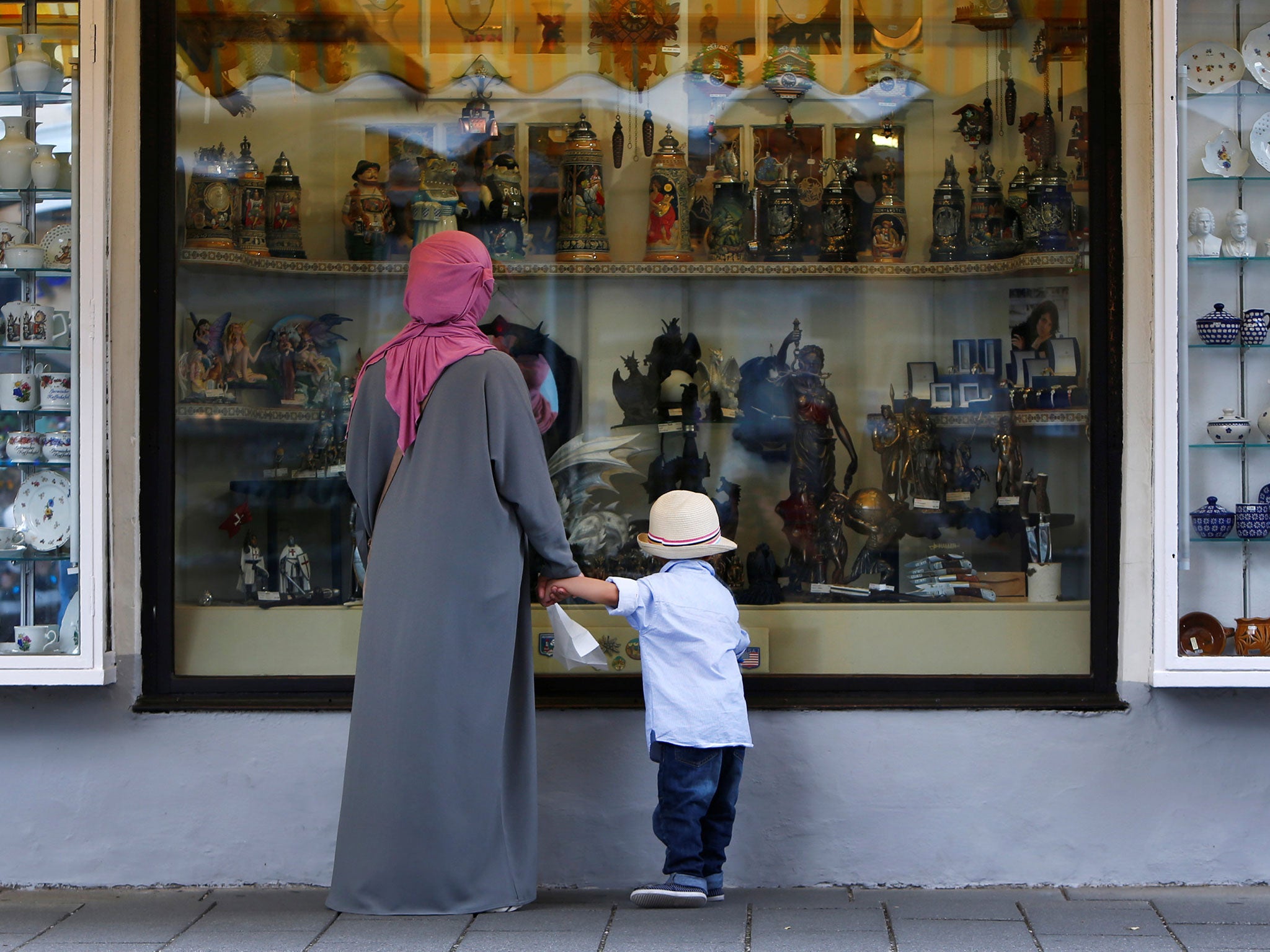Austrian integration minister wants to ban civil servants from wearing the Hijab, but not Christian crosses
Proposed ban is stricter still than France's prohibition of the full-body veil

Your support helps us to tell the story
From reproductive rights to climate change to Big Tech, The Independent is on the ground when the story is developing. Whether it's investigating the financials of Elon Musk's pro-Trump PAC or producing our latest documentary, 'The A Word', which shines a light on the American women fighting for reproductive rights, we know how important it is to parse out the facts from the messaging.
At such a critical moment in US history, we need reporters on the ground. Your donation allows us to keep sending journalists to speak to both sides of the story.
The Independent is trusted by Americans across the entire political spectrum. And unlike many other quality news outlets, we choose not to lock Americans out of our reporting and analysis with paywalls. We believe quality journalism should be available to everyone, paid for by those who can afford it.
Your support makes all the difference.Austria's Minister for Foreign Affairs and Integration Sebastian Kurz said on Friday he wanted to ban public servants, including school teachers, from wearing the Islamic headscarf.
Mr Kurz, of the Christian Conservative People's Party (OVP), is working on a draft law with Muna Duzdar, a junior minister from the OVP's senior Social Democrat coalition partner who has an Arab family background and is Muslim.
If passed by parliament, the nationwide ban would be stricter than laws in France, where only the full body veil is illegal, or Germany, where the highest court in 2015 restricted MPs' scope to ban teachers from wearing the headscarf.
“Because there (schools), it's about the effect of role models and the influence on young people. Austria is religion-friendly but also a secular state,” Mr Kurz said, according to a spokesman.
Christian crosses, widespread in staunchly Catholic Austria, should be allowed in classrooms, Mr Kurz said, referring to the country's “historically grown culture”.
An adviser to the European Court of Justice (ECJ) said in March companies should be allowed to prohibit staff from wearing the Islamic headscarf but only as part of a general ban on religious and political symbols.
Mr Kurz is revamping Austria's integration laws and would also like to include a ban on full body veils and restrictions on the distribution of the Koran by Salafist Muslims, his spokesman said.
A spokeswoman for Austria's most prominent Muslim group, IGGIO, noted that discrimination in the workplace on religious grounds was illegal in Austria and said: “After such a statement, trust is badly shaken.”
She said such a ban would send the wrong signal, not least because working women wearing the headscarf could help overcome deep “patriarchal prejudices”.
Ms Duzdar also told Reuters a person cannot be discriminated against in the workplace on the grounds of their religion and said she wanted to wait for a final ECJ ruling on the issue before sending the law to parliament.
“I'm open to discussions about this but in reality one cannot pick individual religions. If you discuss religious dress and symbols, you have to speak about all religions. We work on a dialogue with all religious communities,” she said.
The coalition has not set a deadline for the draft to be finished.
In a hardening of her stance on migrants' integration in Germany, Chancellor Angela Merkel last month called for a ban on full face veils “wherever legally possible”.
Reuters
Join our commenting forum
Join thought-provoking conversations, follow other Independent readers and see their replies
Comments